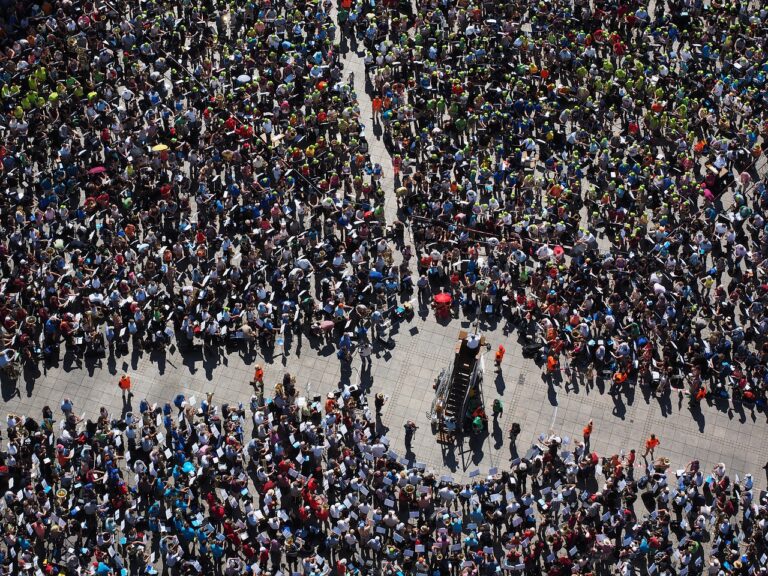The United Nations reports that global population topped 8 billion people on November 15, 2022. This marked an important turning point for humanity as it looks to the future.
The United Nations applauded the population growth as a result of declining mortality rates and rising life expectancy. As of 2019, the average lifespan worldwide was 72.8 yrs, an increase of approximately 9 yrs from 1990. By 2050, the average lifespan is anticipated to be 77.2 yrs.
In this article, we’ll take a look into the global population growth increase, the implication of reaching 8 billion and what the future looks like.
Table of Contents
Global population reaching 8 billion
UN Secretary-General António Guterres stated: “This is a time to celebrate our differences, recognize our common humanity, and be in awe of medical advancements that have drastically reduced maternal and infant mortality rates and extended lifespans.”
In his message for World Population Day, which coincided with the study, the United Nation head added: “Let us defend human rights and the capacity of all individuals to make informed decisions about whether and when to have children.”
The Secretary-General declared, “We still live in a world of enormous gender disparity – and we are witnessing growing assaults on women’s rights, particularly on crucial health services.”
Environmental impact of global population hitting 8 billion
Increased human population puts a strain on the planet’s natural resources. Meanwhile, scientists agree that in the future decades, widespread migration and violence are expected outcomes of factors including high population increase and climate change.
As the world’s population rises, there’s going to be less of everything, including food, water, electricity, and fuel. But the amount people consume is also crucial, showing that governments can make a significant difference by requiring a change in lifestyle habits.
As shown in a 2020 assessment by the non-profit Oxfam International, the carbon emissions of the wealthiest 1%, or around 63 million individuals, were so much more than nearly twice emissions of the poorest half of humankind.
Experts predict that as African nations’ populations grow, they will face severe resource pressure. These countries are among those most at risk from the severe effects of climate change. And they are in urgent need of financial support.
Growth starting to slow exceptionally
There has been a doubling of the human population over the past 50 years, when 4 billion people lived on Earth. It took until 2011 for the world population to surpass 7 billion. Then in a little over a decade, another billion people adds on, hitting 8 million.
Most of the progress toward this goal was made by countries with lower middle incomes and low income. Much of the increase came from Asia and Africa, whereas experts predicted a drop in Europe’s population.
India, which will surpass China as the world’s most populous country in the coming year, helped fuel growth in Asia. It is predicted that China’s population would decline during the next several decades.
For the first moment since 1950, the rate of population growth worldwide fell below 1%. The current fertility rate, 2.3%, is much lower than the average fertility rate in 1950, which was 5%. By 2050, it is anticipated that the decline would slow to 2.1 births. Projections show that the population of the globe will reach 9 b in 2037 and 10 b in 2058. These figures reflecting a slowing rate of increase.
According to the United Nations, the world’s population will reach 10.4 billion in the 2080s and will stay so until the end of the century.
What the future trend look like
A population of 8 billion means that everyone has a fair shot at happiness and respect.
The UN secretary general Guterres has urged everyone to work toward a more equitable and united future.
The World Population Fund (UNFPA) noted that the day marks an opportunity to reflect on and appreciate the achievements of humanity.
The United Nations Population Fund (UNFPA) declared that “greater shares of humanity are better informed and live a healthier life than at any point in history.”
The path to the prosperity and peace that everyone wants and deserves lies in communities that invest in their individuals, in their rights and choices.
Read also: What are the 17 UN Sustainable Development Goals: is the world on track to reach them by 2030?












